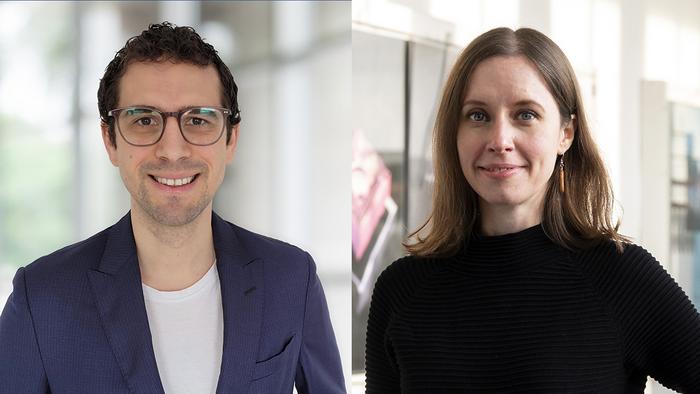Contribution to the Design of Accessible Technologies

Credit: Tanja Meißner, Philip Wilke
Contribution to the Design of Accessible Technologies
Virtual reality (VR) has an enormous potential in leisure activities, education, and work. Still, most VR systems are designed for non-disabled persons. The project AccessVR (stands for: Developing Experience-Centric Accessible Immersive Virtual Reality Technology) of Kathrin Gerling, Professor of Human-Computer Interaction and Accessibility at the Institute for Anthropomatics and Robotics (IAR) of KIT, aims to eliminate physical, digital, and experience-centric barriers and to make VR better accessible for disabled persons. In her project, the computer scientist will first study requirements to be met by user interfaces and the presentation of disability in VR. Then, customized VR prototypes will be developed. Finally, an adaptable VR platform will be designed with various workplace and entertainment scenarios. “The AccessVR project will lay the foundation for further integration of disabled people in VR, contribute to the design of accessible technologies, and support technological research that prioritizes accessibility from the very first day,” the researcher says.
Gerling heads the Human-Computer Interaction and Accessibility research group and co-directs the “Accessibility” real-world lab at KIT’s IAR. Research of her team focuses on how interactive technology can be designed to support self-determination of the people and how experience-centric accessibility can be achieved, which goes beyond the removal of barriers and aims to create enriching experience for us all.
Quantum Research Atom by Atom
Quantum mechanics is the theory that describes laws of nature in the nanoworld on the scale of atoms and molecules and opens up new technological opportunities in information processing and sensor technology, for instance. Philip Willke, Tenure-track Professor at KIT’s Physikalisches Institut (PHI), proposed ATOMQUANT to work on a new architecture based on atomic force microscopy (AFM) for quantum information processing and magnetic sensor technology on the atomic level. Here, spins – the basic units of magnets – play a central role and enable measurement of quantum mechanics properties of individual atoms and molecules. When spins are sufficiently isolated on the nanoscale, they can keep their quantum properties and remain oriented in a given direction for a long time. Within ATOMQUANT, Willke will work on improving these magnetic quantum states on surfaces by several orders of magnitude. “The results will have the potential to bring quantum research to the atomic scale. Potential quantum systems with outstanding quantum properties can be studied in situ and atom by atom,” the physicist explains.
At KIT’s PHI, Willke conducts research at the interface between quantum technologies and nanosciences. He is convinced that future challenges in science and technology will have to be addressed on the fundamental scale of matter, i.e. the atomic scale. With his team, he mainly uses scanning probe microscopy in combination with electron spin resonance to resolve and control quantum systems atom by atom.
ERC Starting Grants 2023
The European Research Council (ERC) awards Starting Grants to outstanding early-stage researchers who want to start an independent career and establish a working group of their own. Projects selected will be funded with up to about EUR 1.5 million each for a period of five years. In the recent competition of 2023, the ERC awarded Starting Grants in the total amount of EUR 628 million to 400 projects in 24 countries. 2696 proposals were submitted to ERC. The approval rate, hence, was bei 14,8 percent.
Being “The Research University in the Helmholtz Association”, KIT creates and imparts knowledge for the society and the environment. It is the objective to make significant contributions to the global challenges in the fields of energy, mobility, and information. For this, about 9,800 employees cooperate in a broad range of disciplines in natural sciences, engineering sciences, economics, and the humanities and social sciences. KIT prepares its 22,300 students for responsible tasks in society, industry, and science by offering research-based study programs. Innovation efforts at KIT build a bridge between important scientific findings and their application for the benefit of society, economic prosperity, and the preservation of our natural basis of life. KIT is one of the German universities of excellence.




